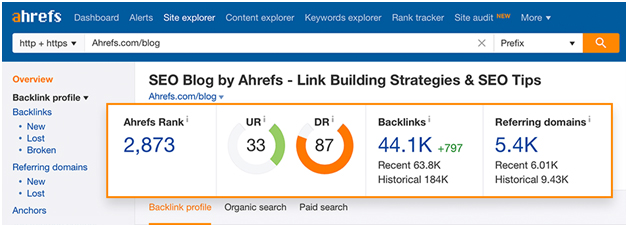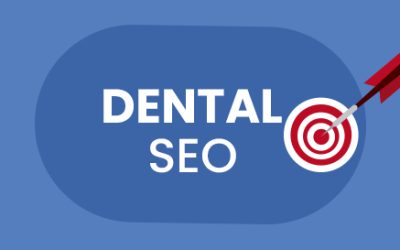To say SEO has “changed a lot” would be an understatement. Search engines are getting smarter, but technically focused SEO is no longer relevant in 2020. Google is constantly updating its algorithm – not to make it harder for businesses to rank – but to make it easier for people to find exactly what they are looking for. We will often see multiple updates from Google, like the BERT update in October (to help the search engine better interpret natural language searches) or site diversity update in June (to reduce duplicate organic listings on SERPs for the same site). Marketers are constantly faced with the challenge of educating themselves about each specific update, adapting their SEO strategies accordingly and addressing any reduction in organic traffic. According to a report from Search Engine Watch, it is estimated that by 2020, business owners will spend around 82 billion dollars on their SEO marketing, which makes it clear that SEO will continue to grow in popularity over the years. Maintaining an effective SEO strategy can be a challenge that requires a commitment to quality, close eye to stay at the top of the search rankings and target audience visibility. An experienced medical website marketing company can provide customized local SEO services to ensure that your site is visible to the right audiences.
Due to the fast pace of SEO evolution, many businesses still aren’t sure what is outdated, what is important, and what will actually move the needle.
Here listed are some common SEO myths that markets need to be aware of –
Myth 1 – Links are better than content
Link building has for long been considered the golden standard of SEO. Earlier, the more inbound links your website had, the more authority Google gave it. This led many websites to build as many links as possible without any thought or strategy, including back links from low-authority websites. Google realized this problem of SERPs getting flooded with irrelevant and bad inbound links with no value for the user. In 2013, Google upended that practice with the release of Penguin 2.0, which gave priority to links from high-authority domains, essentially destroying most back link strategies. Link building is still and will continue to be an important SEO tool, but it is no longer purely a numbers game. The best way to build quality back links is with high-quality content – the more the better. Investing in quality content (think web pages, blog posts and guest posts on other sites) is essentially investing in quality back links.
Myth 2 – Meta descriptions are supremely important to ranking
Many websites give undue importance to their metadata – the HTML descriptions given to a page to concisely explain its contents. The reason SEOs believe this myth is because these descriptions commonly appear on Google search results snippets, which would impact rankings. However, in 2009 Google announced that meta data such as descriptions and keywords have no influence on page rank. So, while meta descriptions have zero impact on rankings, they definitely impact clicks, which is almost as important.
Myth 3 – XML sitemaps automatically improve your search rankings
XML sitemaps help search engines crawl and index the pages of a website. Search engines especially like to see fresh pages added to the sitemap, as it indicates that the website is up-to-date and may be more relevant to online users. However, the real question here is – does the XML sitemap help boost a website’s search rankings?According to the Google Webmaster Central Blog, an XML sitemap does not have a direct effect on the rankings of a website. Including a sitemap ensures search engines like Google know about all the important URLs on a website. This can be useful when certain web pages are not easily discoverable by crawlers. In short, an XML sitemap will boost Google’s crawl and may increase the presence and visibility of a website, but it will not automatically improve a site’s organic ranking.
Myth 4 – Keyword stuffing helps the page to rank higher
Keywords, in all its forms for SEO, seem to be a hotly discussed topic. The strategy to stuff as many keywords as possible into each page has worked successfully until some years ago. Such content usually does not make sense because it is focused on search engines, but not on the user. However, Google algorithm updates have done away with it in 2008 and again in 2012. Today, Google penalizes sites for keyword stuffing and rewards relevant content. With the rise of semantic search, the goal is to cover a topic rather than zoning in on a specific keyword. If you want a page to rank higher, focus on content strategy more than keyword density. There is no ideal percentage for keyword density. Rather, have a vocabulary, semantics, and a long copy to avoid keyword stuffing. Also, be very careful not to have too much of one keyword.
Myth 5 – Using tabbed content can penalize your site
Tabbed content was designed to keep the website clean and to the point, without overcrowding. Tabbed content can easily show or hide the content by a click. However, the hidden text (using expandable sections) was bad for SEO as bots could not read the text and therefore the website couldn’t get ranked. Google discarded those websites that used the “click-to-expand” type of content as they were hiding content from the user, exactly the opposite of its intention.
Myth 6 – Local SEO doesn’t matter
If you are a local business that targets customers within a specific geographic location, then local SEO is the only thing that matters. While it is a general fact that local SEO doesn’t help your website rank for your target keywords, it does help people nearby find your business. With the launch of Pigeon in July 2014, Google began giving local searches top billing on the results page. Like standard search results, Google takes hundreds of data points into account before displaying a local search result. In fact, a vast majority of marketers (around 64 percent) view Google as the new local business “homepage,” usurping Yellow Pages.Google displays more information directly in the search results, which means customers no longer need to click to get the information they require.
Myth 7 – Google will penalize your website for duplicate copy
As Google releases new algorithm updates (like Penguin, Panda, Pigeon, and Layout), different websites will display varying results. Each time an algorithm is updated; one site may see devaluations, while another may see a steady increase in its organic traffic. Penalty devaluations normally occur when Google evaluates that your web page is in violation of the Webmaster guidelines. When a website uses deceptive or manipulative content to gain traffic, Google may respond in a negative manner by devaluating the website’s ranking in the search engine results page.Regarding duplicate content on a website, the common misconception is that Google will penalize the site. However, Google does not have a duplicate content filter. If there are multiple pages on a website with the same content, Google will not rank all pages for the same query. Crawlers will choose which page to rank for what, which can have a negative impact on organic rankings.
Myth 8 – Pop-ups are bad for SEO
Popups, when used properly, can be an integral part of your digital marketing strategy. However, a lot of web sites tend to misuse pop-ups. In 2016, Google said it would penalize those websites practicing what it termed “intrusive interstitials” starting in 2017. It is important to make sure that your pop-ups do not hinder the user’s ability to access content, especially on mobile. For instance, if a user has to “x” out of a popup in order to see or read your content, Google won’t be happy. As long as your pop-up does not impact your mobile user’s experience, it will be good.
Myth 9 – Artificial social shares will boost your rankings
Artificial or fake social shares are considered black hat social media techniques. Social signals are emerging as ranking factors as search engines try to understand our social interaction and behavior. A web page with lots of shares and links has the benefit of getting ranked higher. However, those pages with artificially inflated like counts are harming themselves, making it harder and more expensive to reach the type of audience they cater to. The bottom line is artificial social shares don’t help in keyword ranking.
Never ever let the above-mentioned SEO myths sideline your efforts towards ranking your website for organic success. Search Engine Optimization (SEO) is not a static pursuit. As Google and other search engines continue to tweak their algorithms to give users the most relevant search results, it will be important for content marketers and other SEO experts to stay updated about the latest SEO trends and updates. Experienced companies offering website design services for healthcare are aware about outdated practices that must be avoided. With emerging, innovative technologies that give priority to user experience and service, websites have truly become informative, relevant, and could ensure continued success for years to come.






